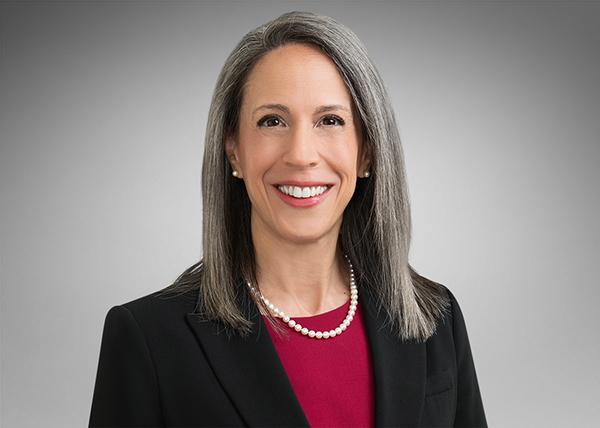On August 11, the FDA published responses rejecting two new dietary ingredient notifications (NDINs) (1199 and 1202) for full-spectrum hemp extract (FSHE), which contains cannabidiol (CBD). FDA concluded that the NDIN submitters’ FSHEs cannot be used in dietary supplements because they contain CBD and have been deliberately produced and marketed for their CBD content. The agency also expressed concerns about the safety information provided by the submitters. We summarize below FDA’s responses and the potential impact on the CBD industry.
FDA’s NDIN Responses
Manufacturers of dietary supplements that contain a new dietary ingredient (NDI) must submit a pre-market notification, known as an NDIN, to FDA at least 75 days before marketing a dietary supplement containing the NDI. The submission must contain information to support the conclusion that the ingredient will reasonably be expected to be safe.[1]
To satisfy this requirement, Charlotte’s Web, Inc., and Irwin Naturals submitted NDINs for their respective FSHE ingredients, which are extracts that include CBD and other components of the hemp plant. The Charlotte’s Web NDIN proposed a daily intake of 19.5 mg CBD per day, while the Irwin Naturals NDIN proposed a daily intake of 65 mg CBD per day.
In responding to these NDINs, FDA first explained that the submitters’ FSHE ingredients could not be used in dietary supplements pursuant to 21 U.S.C. § 321(ff)(3)(B), which prohibits dietary supplements from including articles approved as new drugs, or investigated as new drugs and for which substantial clinical investigations were instituted and made public, unless the article was first marketed as a food or dietary supplement. As FDA has previously stated, CBD is the active ingredient in an approved drug product, Epidiolex, and the agency has determined that CBD was not marketed in food or supplements before it was authorized for investigation as a new drug. FDA therefore maintains that CBD cannot be added to foods or dietary supplements. FDA thus determined that these FSHE ingredients cannot be used in dietary supplements because the agency concluded that they are CBD products, based on the levels of CBD in the hemp source and in the ingredient, and how the products are marketed.
Many proponents of CBD in dietary supplements have taken the position that FSHE is not the same “article” as Epidiolex, a highly purified CBD isolate, and therefore should not be excluded under § 321(ff)(3)(B). FDA declined to draw that distinction here, however. The agency noted that these FSHE ingredients were “designed to ensure consistent levels of CBD,” produced from hemp plants that contain “robust” levels of CBD, contain “significant amount of CBD per mL” (Charlotte’s Web) or deliver “a relatively high amount of CBD per day, comparable to a drug product” (Irwin Naturals), and that the companies “market ‘full-spectrum hemp extract’-containing products as CBD products.” FDA therefore concluded, “[l]ooking at the totality of the record,” that these FSHEs are CBD products subject to the exclusion from the definition of dietary supplement.
This analysis leaves open the possibility that if a FSHE were not deliberately sourced and produced in a manner to deliver “robust” levels of CBD, but merely contained naturally-occurring levels of CBD within the normal hemp plant (which can vary), then FDA might not find the FSHE to be excluded from use in dietary supplements. We would expect FDA to take a position consistent with the one the agency has taken with respect to red yeast rice, which naturally contains the drug lovastatin. FDA has objected to red yeast rice supplements under § 321(ff)(3)(B) when they have been deliberately produced to contain elevated levels of lovastatin, but has allowed red yeast rice supplements with only naturally-occurring levels to be marketed. The agency did not address this issue specifically in the NDIN responses, however, and that may be because FDA has continued safety concerns about CBD.
FDA explained in its NDIN responses that it thinks the safety information provided by Charlotte’s Web and Irwin Naturals was inadequate. In particular, the agency indicated that the NDINs did not sufficiently address hepatotoxicity and reproductive toxicity concerns associated with CBD. FDA also objected on the basis that the mixtures studied by Irwin Naturals were not completely characterized and could not be compared to the company’s FSHE. The agency also concluded that the two years of marketing history provided by Charlotte’s Web was insufficient evidence of safety. Accordingly, FDA said that even if CBD were not excluded from use in dietary supplements, FDA might consider dietary supplements containing the submitters’ FSHE to be adulterated.
Industry Impact
FDA’s stance on FSHE is concerning for CBD dietary supplement manufacturers and for the CBD industry as a whole. First, FDA’s determination that the submitters’ FSHE is precluded from use in dietary supplements suggests that, despite FDA’s previously-stated intention to develop a policy allowing CBD in supplements, legislation might be necessary to establish such a pathway. The NDINs provided FDA with an opportunity to distinguish FSHE from CBD isolate for the purpose of dietary supplement preclusion, but FDA declined to do so (at least not for these ingredients), signaling that little progress has been made since FDA issued its CBD report to Congress in March 2020.
Second, FDA’s conclusion that the NDIN submitters provided inadequate safety data may be frustrating to manufacturers of all types of CBD products, including drugs, other foods, and potentially cosmetics. FDA’s concerns about CBD’s potential for liver and reproductive toxicity seemingly have not been resolved to the agency’s satisfaction, which reinforces that the agency may not adopt a more CBD-friendly policy moving forward. Some stakeholders believe FDA is applying inappropriate and insurmountable safety standards to NDIs, which must be “reasonably expected to be safe.”[2]
In sum, FDA’s responses to these NDINs indicate that the agency is unlikely to help pave a pathway toward the use of CBD in dietary supplements and food on its own initiative. Legislation will likely be needed to open such a pathway with certainty.
Covington will continue to monitor regulatory and legislative developments regarding CBD, and will keep our clients and contacts apprised.
If you have any questions concerning the material discussed in this client alert, please contact the members of our Food, Drug, and Device practice.
[1] 21 U.S.C. 350b(a)(2).
[2] 21 U.S.C. § 350b(a)(2).
Back
Back






